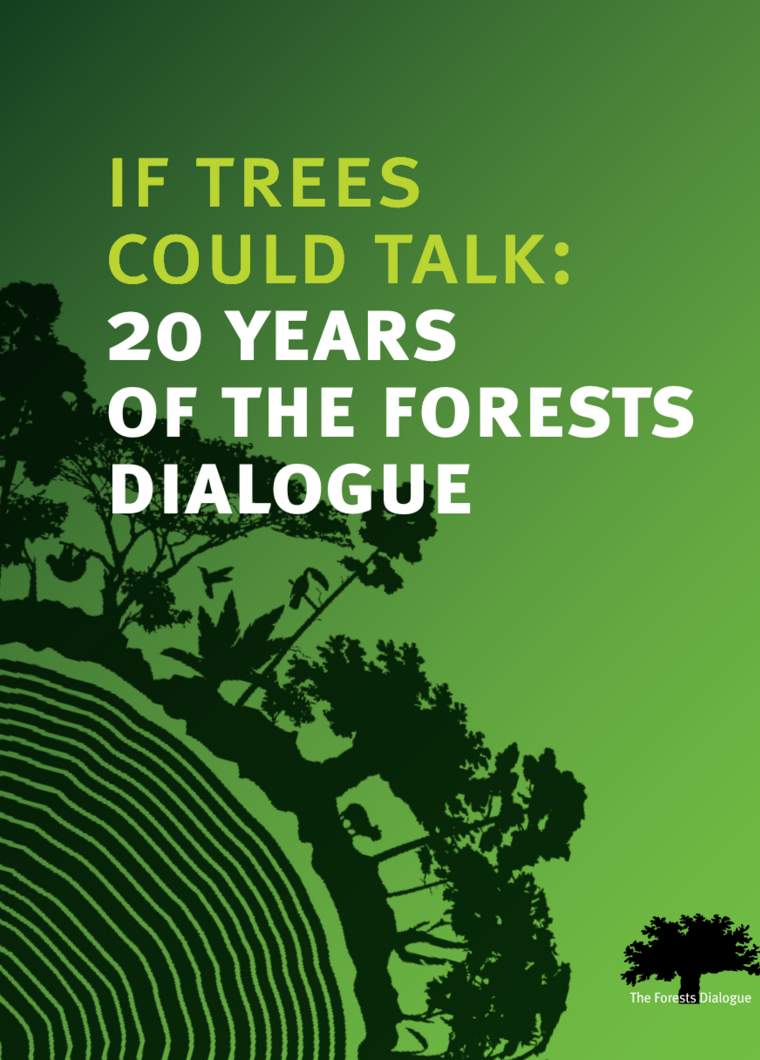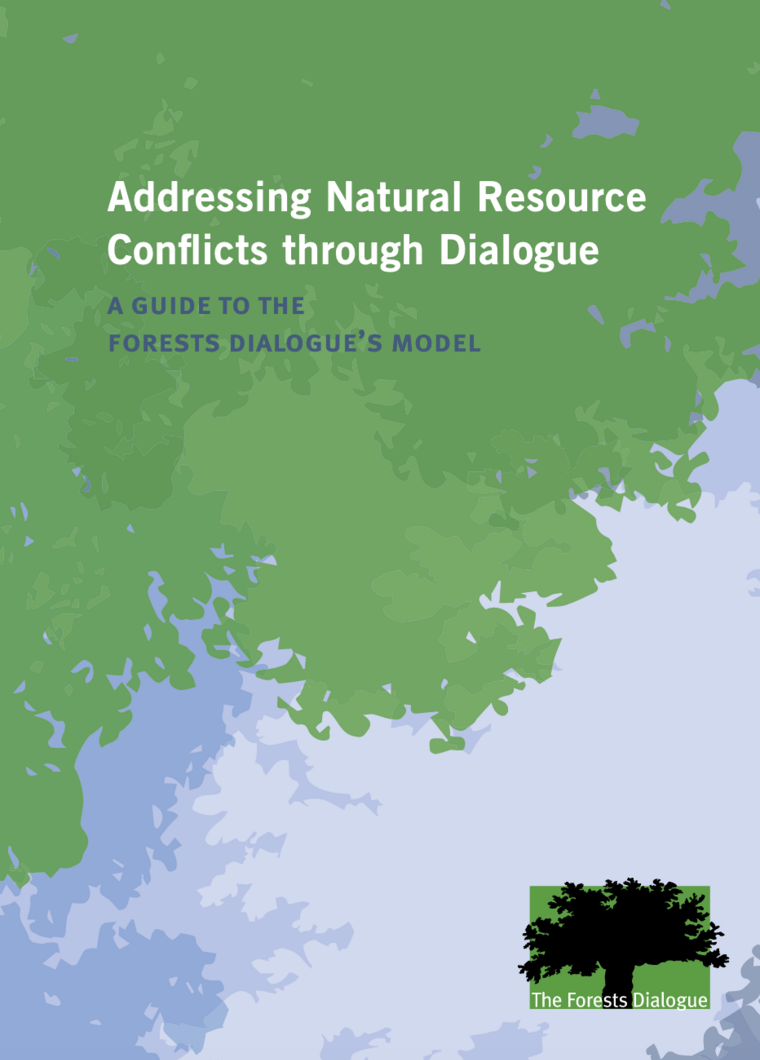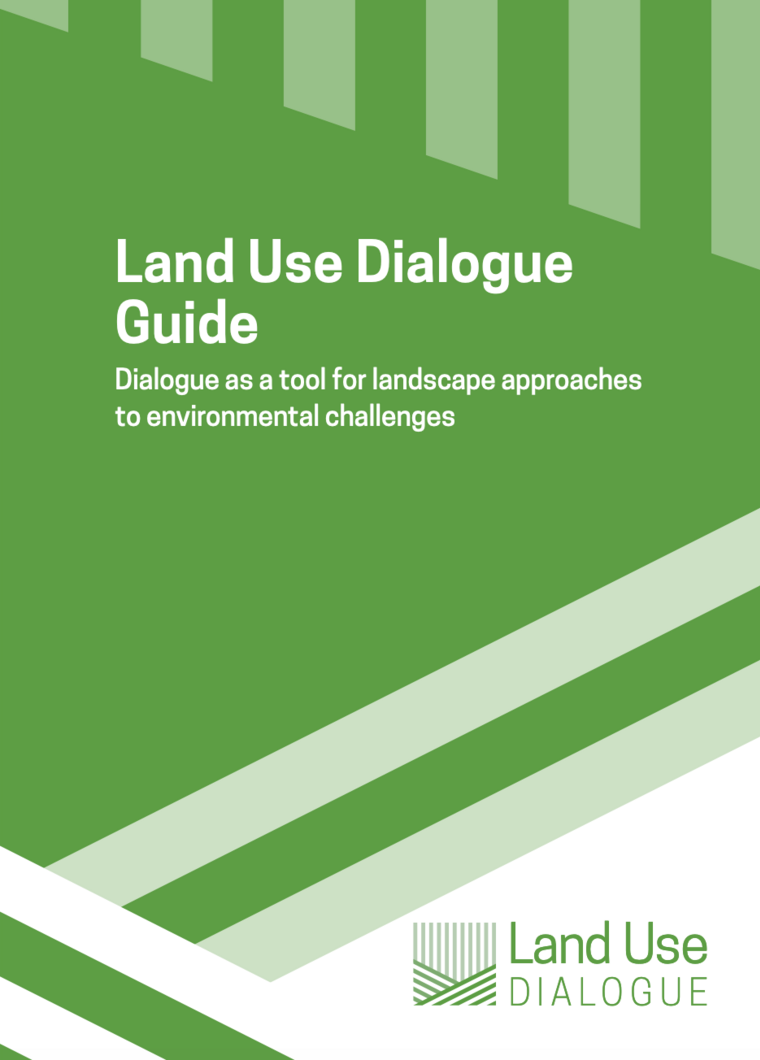Publications
The Forests Dialogue produces and publishes a variety of documents - maintained in a comprehensive library below. The majority of TFD publications are developed through TFD’s initiative process, including the following major publication types. In the lead-up to an initiative, a foundational Scoping Paper is produced to provide context for the scoping dialogue. Background Reports that provide stakeholders with relevant location-specific content are created for each subsequent dialogue following the scoping dialogue. At the conclusion of a dialogue, the co-chairs, with help from the TFD secretariat, produce a Co-chairs’ Summary Report that captures the key perspectives, discussions, agreements, and next steps from the dialogue. At the conclusion of an initiative, the Advisory Group, co-chairs, select leaders, and the Secretariat synthesize the initiative’s conclusions into a TFD Review. Additionally, Country Reports that aggregate learnings from a number of country-specific dialogues are typically produced for initiatives that involve numerous country-level dialogues, including TFD’s REDD+ dialogues. TFD also facilitates the production of guides and policy recommendations including a guide to the TFD process, the Land Use Dialogue methodology. These are geared towards practitioners or policy makers and contain actionable steps that stakeholders can take to enact change based on learnings gathered through the TFD process.
Navigate TFD’s extensive publication database using the search function below, or visit specific dialogue or initiative pages to see their associated publications.
Between April and September 2009 The Forests Dialogue* held four international dialogues that engaged
nearly 100 leaders from forest stakeholder groups across the business, environmental, scientific, Indigenous
Peoples’ and forest-based communities.
These dialogues produced a consensus on financing for REDD-plus, including 26 recommendations which,
This discussion paper explores the potential for addressing conflict in the forest sector through
the use of company-led tools and mechanisms. A major conflict issue for many is that of
recognising and negotiating rights to land and resources. Conflicts also arise between
companies and communities or civil society organisations over conservation priorities,
From 21-24 October The Forests Dialogue (TFD) convened a broad group of stakeholders in Sykyvkar, Republic of Komi, Russian Federation to discuss how forests and forest industry contribute to rural livelihoods.
On 24-25 June 2008 in Gland, Switzerland, The Forests Dialogue convened the second full dialogue under its Forests and Climate Change (FCC) initiative. This dialogue was hosted by the International Union for Conservation of Nature (IUCN).
From 13-17 April 2008, The Forests Dialogue (TFD) will convene a multi-stakeholder dialogue in Vitória, Brazil with associated field visits near Vitória and to Mucuri. This dialogue is a continuation of TFD’s initiative on Intensively Managed Planted Forests (IMPFs).
Copenhagen and beyond, concerned stakeholders groups, including government,
multilateral institutions, NGOs, indigenous groups, scientists, donors and private
sector groups, have begun to address the gaps that exist between a country’s
willingness to participate in a future REDD mechanism, and its technical and
From 13-17 April 2008 The Forests Dialogue (TFD) convened 43 international leaders from the forest products industry, finance and investment sector, labor, the NGO community, academia, government, small forest owners, and local indigenous and rural communities in Espirito Santo and Bahia, Brazil for site visits and dialogue on intensively managed planted forests (IMPF).
On 1-2 April 2008 in Washington DC, The Forests Dialogue (TFD) convened more than 50 leaders for the first full dialogue under its new forests and climate change (FCC) initiative. Hosted by The World Resources Institute, this dialogue was part of a 2 year initiative focused on stakeholder engagement on this important issue.
For REDD to be successful, a robust and dynamic financing scheme needs to be
designed, negotiated and implemented. There are many financial schemes
suggested for REDD so far including market mechanisms and fund-based
systems. But there is a lack of understanding of and communications about those
Intensively-managed planted forests (IMPF) are highly-productive
plantation forests grown primarily for wood and fibre production. There
are currently an estimated 25 M ha of IMPF globally, representing about
a quarter of plantation forests and occupying c. 0.2% of global land area.
IMPF are owned and managed at scales which range from large




